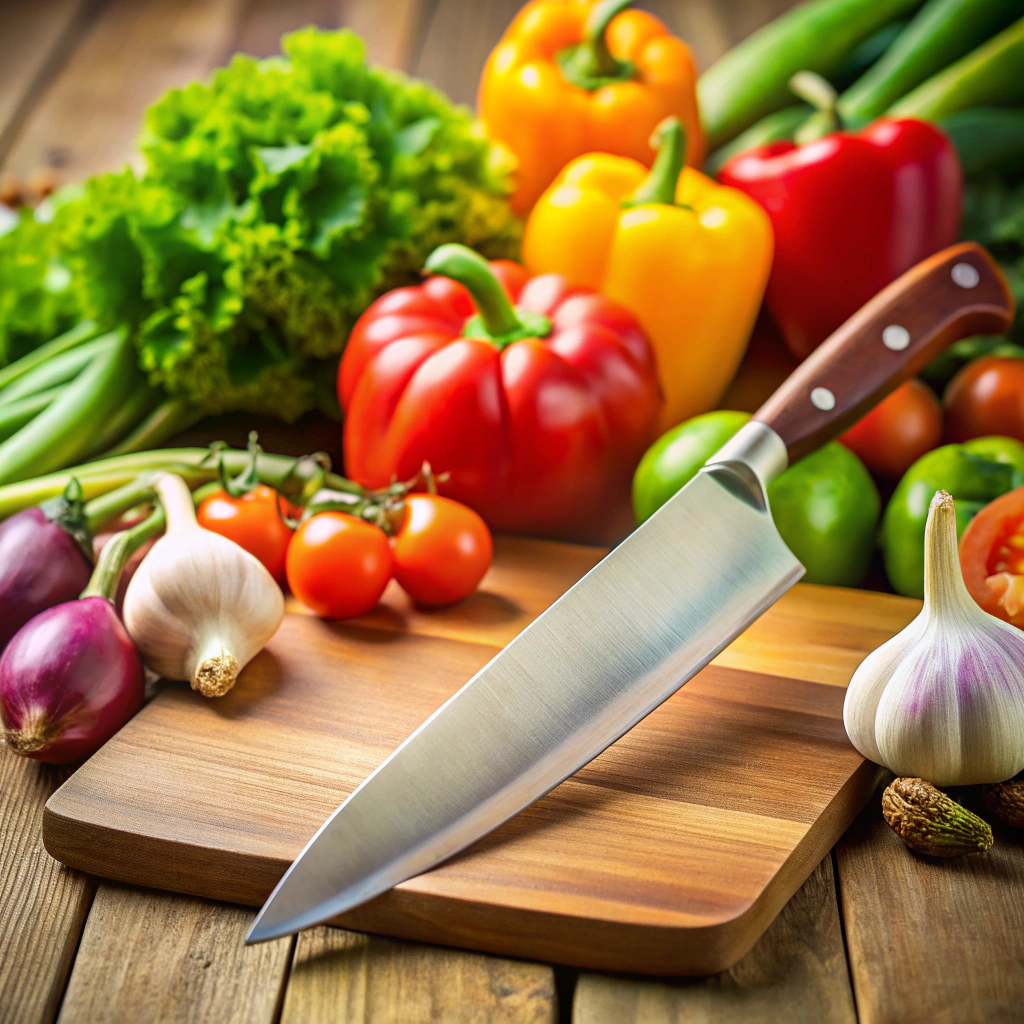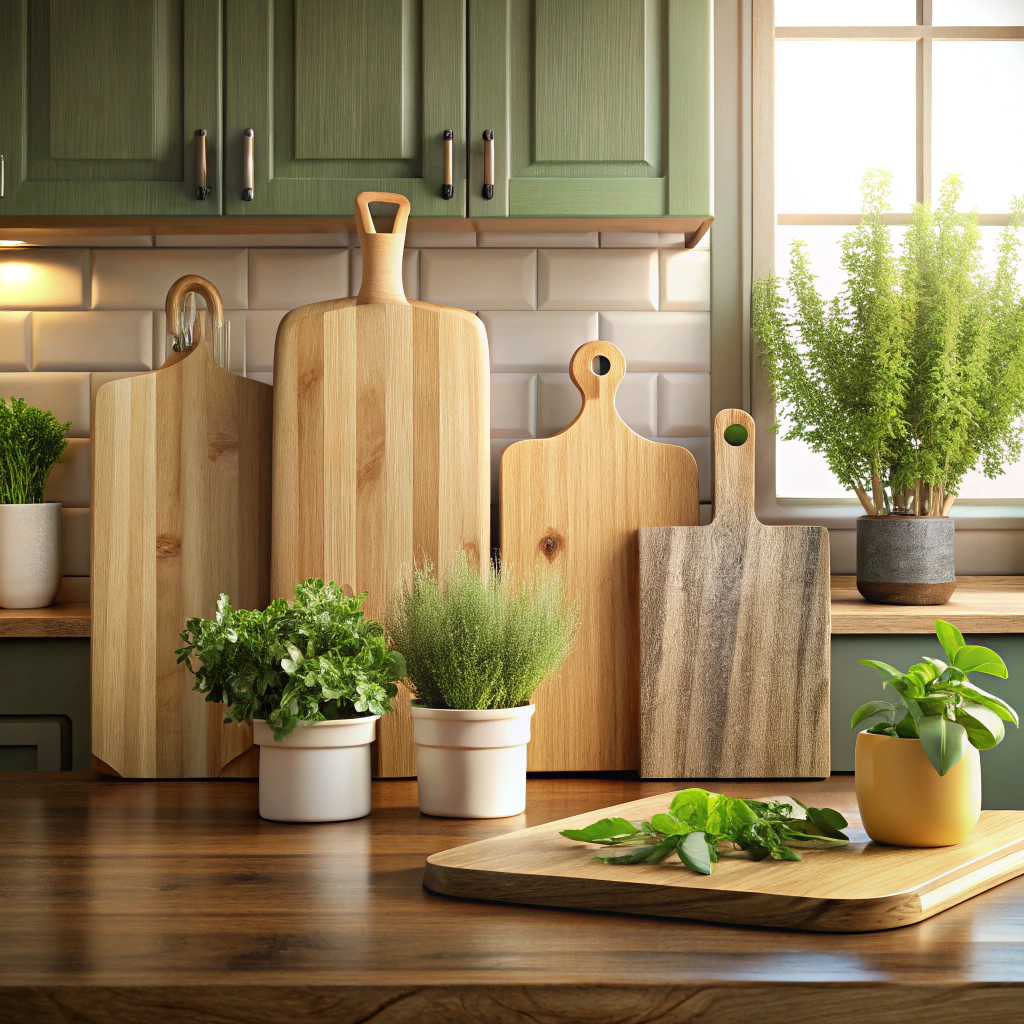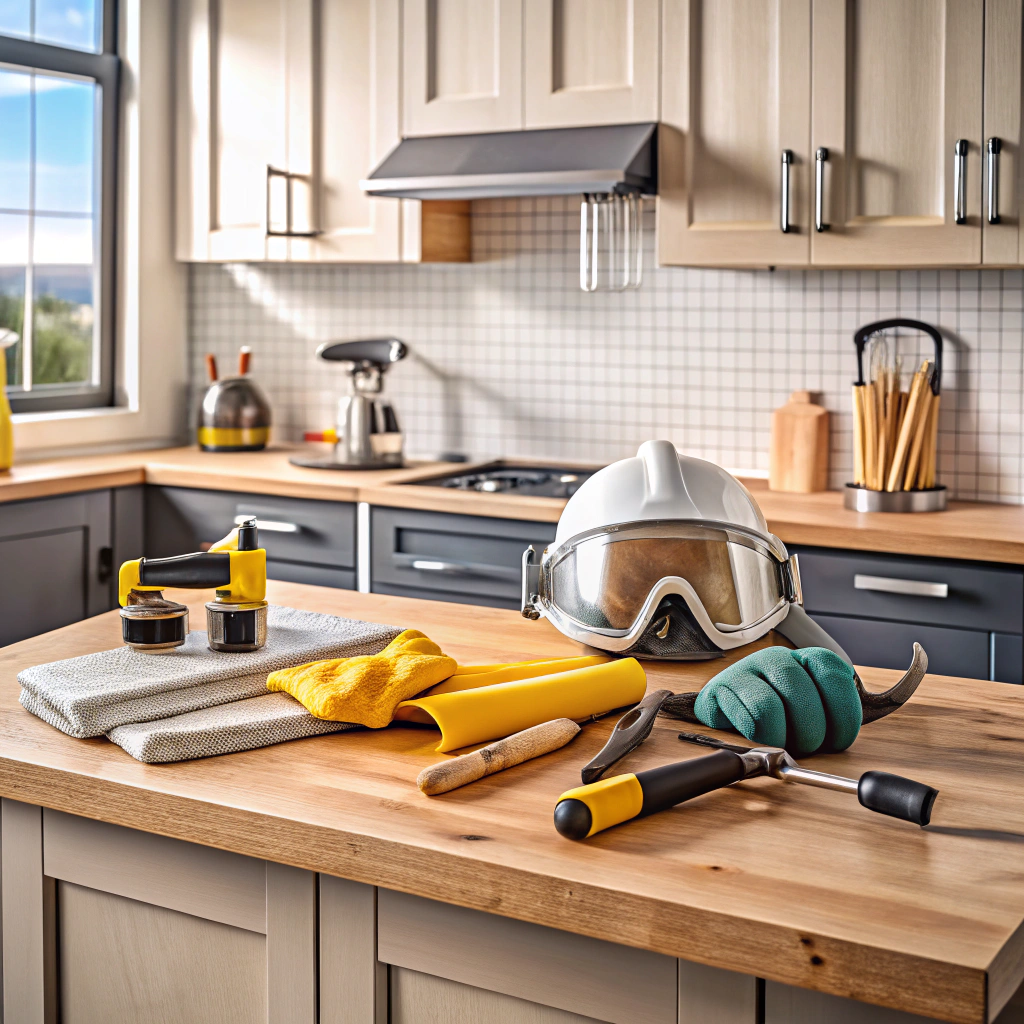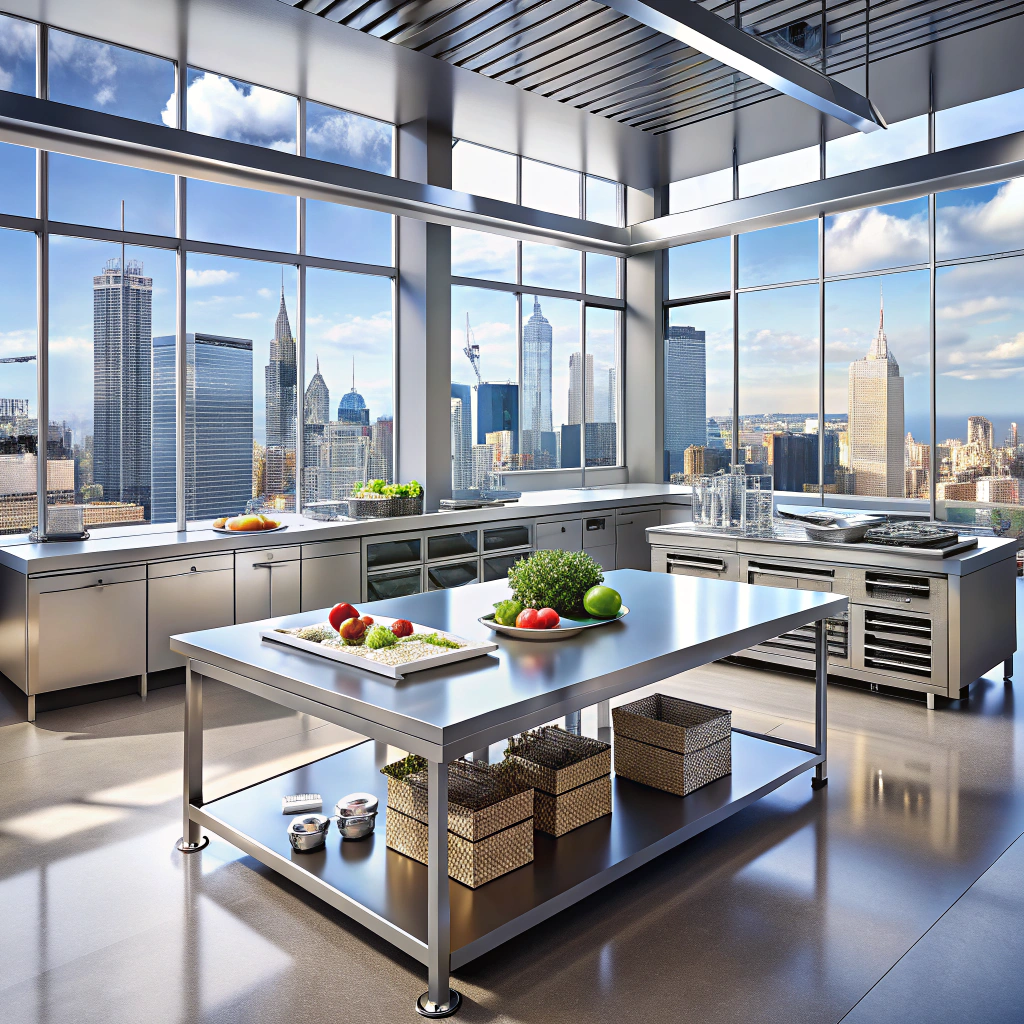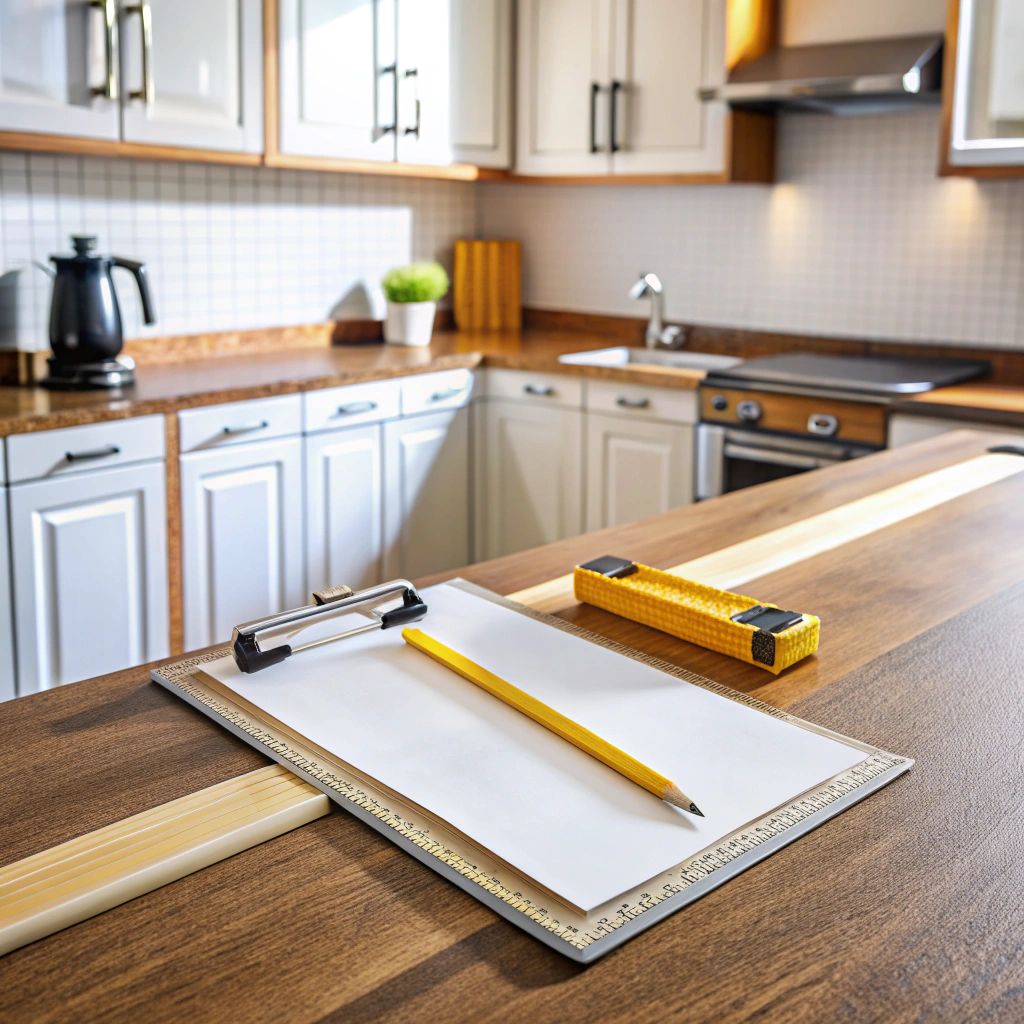Last updated on
Discover the impacts of oven cleaner on kitchen countertops and learn how to prevent potential damage to your surfaces with our insightful guide.
Have you ever wondered what oven cleaner can do to your kitchen countertops? Maybe you’ve accidentally spilled some while cleaning your oven and noticed some discoloration or damage on the surface. Or perhaps you’re considering using it as a quick fix for stubborn stains on your countertops.
Before you reach for that bottle of oven cleaner, it’s important to understand its effects on different types of countertop materials. In this article, we’ll explore the potential risks and benefits of using oven cleaner on kitchen countertops so that you can make an informed decision about how to clean and maintain your surfaces.
What's Inside
Understanding Oven Cleaner Ingredients
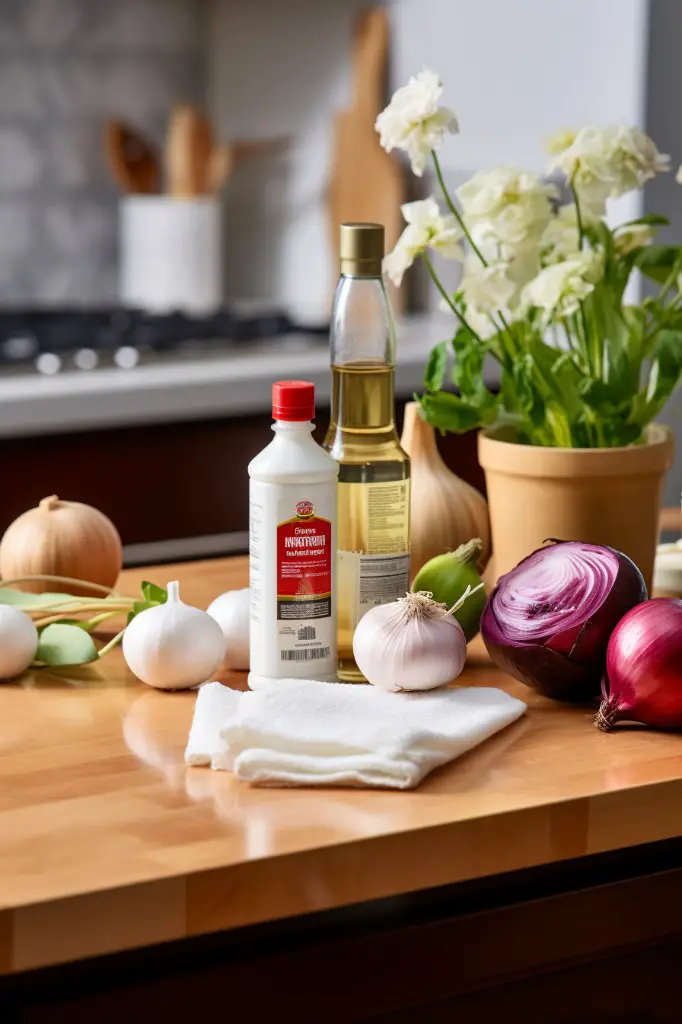
It’s important to understand the ingredients in oven cleaner before using it on your kitchen countertops. Most commercial oven cleaners contain harsh chemicals such as sodium hydroxide (lye), which can cause chemical burns if not handled properly.
Other common ingredients include surfactants, solvents, and corrosion inhibitors.
Surfactants are used to break down grease and dirt particles so that they can be easily wiped away. Solvents help dissolve tough stains like burnt-on food or oil spills while corrosion inhibitors protect metal surfaces from rusting or corroding due to exposure to the cleaning solution.
It’s essential to read the label carefully before purchasing an oven cleaner product for use on kitchen countertops because some formulations may contain additional chemicals that could damage certain types of countertop materials such as marble or granite.
Harmful Effects of Oven Cleaner On Countertops
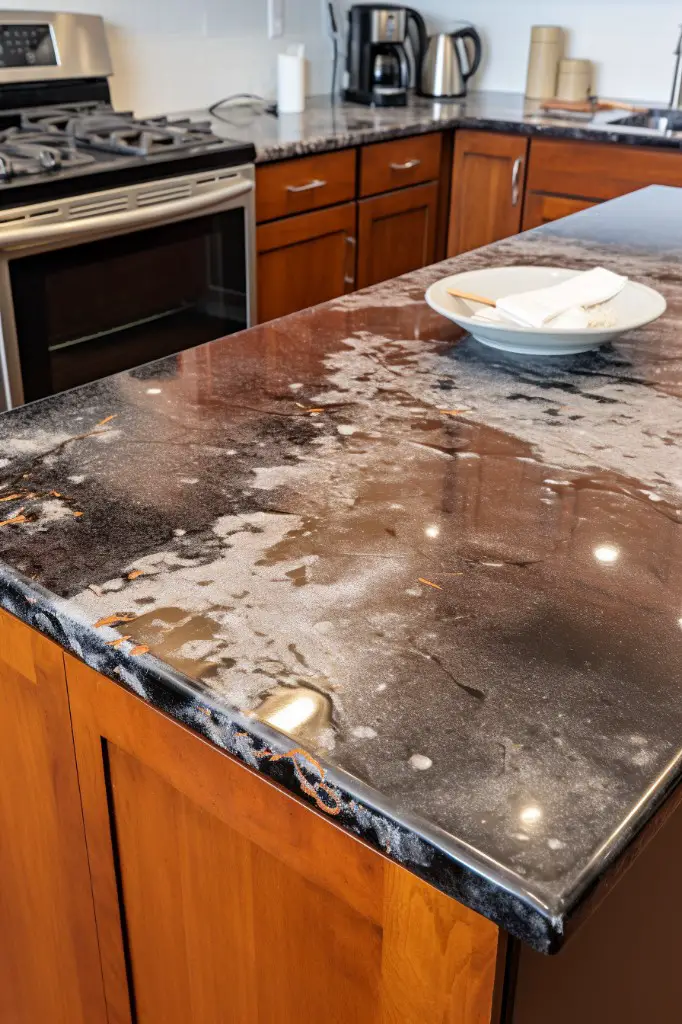
The harsh chemicals in many types of oven cleaners are designed to dissolve tough stains and baked-on food particles, but they can also eat away at the protective coatings on countertop surfaces. This chemical reaction may result in discoloration, etching or even permanent damage that cannot be repaired.
In addition to damaging the surface of your countertops, some ingredients found in certain types of oven cleaners may pose a health risk if ingested or breathed in during use. For example, sodium hydroxide is a common ingredient used for its powerful cleaning properties but it’s highly corrosive and toxic when ingested or exposed through skin contact.
It’s important always read the label carefully before using any type of cleaning product on kitchen surfaces including countertops as well as following safety precautions such as wearing gloves while handling them.
The Impact of Oven Cleaner On Various Countertop Surfaces
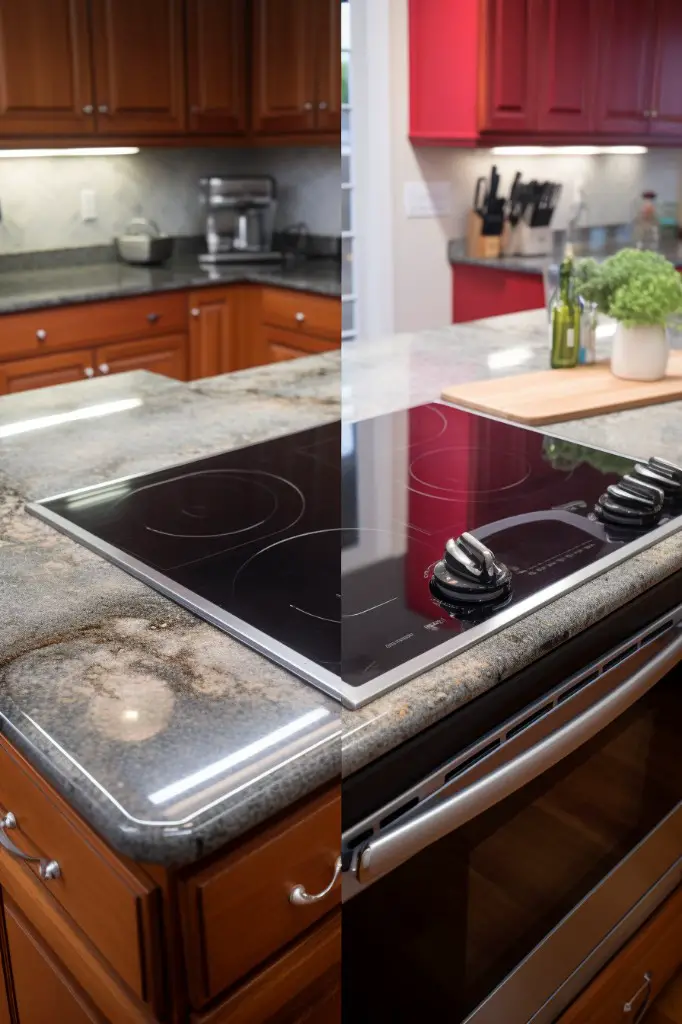
Some surfaces can withstand the harsh chemicals in oven cleaners, while others may become discolored or damaged. For example, stone countertops like granite and marble are porous and can absorb the chemicals in oven cleaner, leading to discoloration or etching on the surface.
Tile countertops may also be vulnerable to damage from certain types of oven cleaners.
On the other hand, stainless steel is a non-porous material that is generally resistant to chemical damage but can still be affected by prolonged exposure to strong cleaning agents like those found in some brands of oven cleaner.
Formica laminate counters have a plastic coating that makes them more susceptible than other countertop materials such as quartz or granite when it comes into contact with harsh chemicals such as those found in many commercial-grade cleaning products including some brands of Oven Cleaner.
Stone Countertops and Oven Cleaner
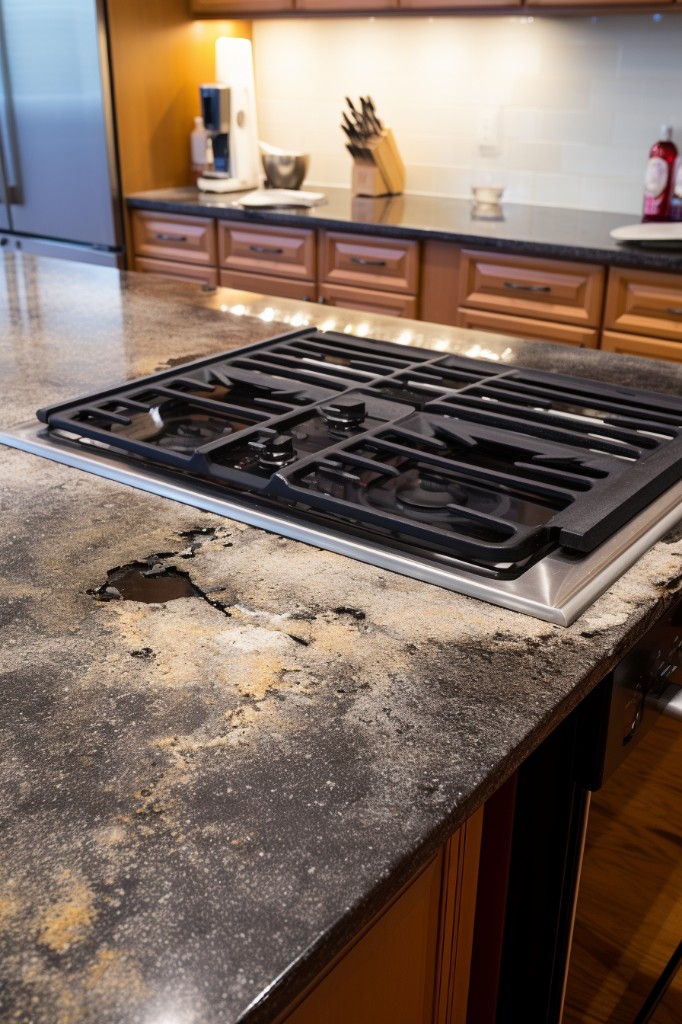
They can be susceptible to damage from harsh chemicals like oven cleaner. Stone surfaces such as granite, marble, and quartz can all be affected by the use of oven cleaner.
The acidic ingredients in some types of oven cleaners can etch or discolor stone surfaces over time. This is especially true for natural stones like marble which are more porous than other materials and therefore more vulnerable to chemical damage.
If you have stone countertops in your kitchen, it’s important to avoid using harsh chemicals like oven cleaner on them. Instead, opt for gentler cleaning solutions that won’t harm the surface of your counters.
To clean stone countertops safely without damaging them with an abrasive or acidic substance:
- Use warm water mixed with mild dish soap.
- Wipe down the countertop with a soft cloth or sponge.
- Rinse thoroughly with clean water.
- Dry completely using a soft towel.
Tile Countertops and Oven Cleaner
They can be vulnerable to damage from harsh chemicals like oven cleaner. The acidic ingredients in oven cleaner can etch the surface of tile countertops, leaving behind unsightly stains and discoloration.
If you have tile countertops in your kitchen, it’s important to avoid using oven cleaner on them. Instead, opt for gentler cleaning solutions that won’t harm the surface of your tiles.
You can make a simple cleaning solution by mixing equal parts water and vinegar or baking soda.
To clean tough stains on your tile countertop without damaging it with harsh chemicals like oven cleaners:
- Mix 1/4 cup baking soda with enough water to form a paste.
- Apply the paste onto the stain.
- Let sit for 10-15 minutes.
- Scrub gently with a soft-bristled brush or sponge until stain is removed
- Rinse thoroughly with warm water
Stainless Steel Countertops and Oven Cleaner
They can be vulnerable to damage from harsh chemicals like oven cleaner. The acidic ingredients in oven cleaner can cause discoloration, etching, and even pitting on stainless steel surfaces.
To avoid damaging your stainless steel countertops with oven cleaner, it’s important to use alternative cleaning methods that are safe for this material. One effective option is using a mixture of warm water and mild dish soap or vinegar to clean the surface thoroughly.
If you’ve already used oven cleaner on your stainless steel countertop and notice discoloration or other signs of damage, don’t panic! There are ways to restore the appearance of your countertop without replacing it entirely. For minor stains or scratches caused by the use of an abrasive sponge during cleaning after applying an over-cleaner product; try using baking soda mixed with water as a gentle scrubbing agent followed by rinsing off with warm soapy water then drying completely.
Formica Countertops and Oven Cleaner
They can be easily damaged by harsh chemicals such as oven cleaner. The high alkaline content in oven cleaners can cause discoloration, fading or even melting of the Formica surface.
If you have Formica countertops in your kitchen, it’s important to avoid using oven cleaner on them altogether. Instead, opt for gentler cleaning solutions that won’t damage the surface of your countertop.
To clean Formica countertops effectively without causing any harm to them, mix warm water with mild dish soap and use a soft cloth or sponge to wipe down the surface gently. Avoid using abrasive sponges or scrubbers that could scratch the finish on your countertop.
In case you accidentally spill some oven cleaner on your Formica countertop while cleaning other areas of your kitchen; immediately rinse off with plenty of water and dry thoroughly with a clean towel afterward.
Wooden Countertops & Butcher’s Blocks and Oven Cleaner
They require special care when it comes to cleaning products, including oven cleaner. The harsh chemicals in oven cleaner can damage the wood surface of your countertop or butcher’s block, leaving unsightly stains or even causing warping.
If you have wooden countertops or a butcher’s block in your kitchen, it is best to avoid using oven cleaner altogether. Instead, opt for gentle cleaning solutions such as warm water and mild soap or vinegar solution.
In case you accidentally spill some oven cleaner on your wooden surfaces while cleaning other parts of the kitchen; immediately wipe off any excess with a damp cloth before rinsing thoroughly with clean water. Avoid scrubbing too hard as this may cause further damage to the wood surface.
Damage to Composite Countertops
They can be susceptible to damage from harsh chemicals like oven cleaner. Composite countertops are made of a mixture of materials such as resin, quartz, and granite particles that have been compressed together under high pressure.
While this makes them resistant to scratches and stains in most cases, it also means that they can react negatively with certain chemicals.
Oven cleaner contains strong alkaline ingredients like sodium hydroxide or potassium hydroxide which can cause discoloration or even etching on composite surfaces if left on for too long. The chemical reaction between the oven cleaner and the countertop material may result in permanent damage that cannot be repaired easily.
If you accidentally spill oven cleaner on your composite countertop surface, it’s important to act quickly by wiping up any excess liquid with a damp cloth immediately. Avoid using abrasive sponges or scrubbers as these could scratch the surface further.
Oven Cleaner Effects On Marble Countertops
They can be easily damaged by harsh chemicals like oven cleaner. The acidic ingredients in oven cleaner can etch the surface of marble, leaving behind unsightly stains and marks that cannot be removed.
If you have accidentally used oven cleaner on your marble countertop, it’s important to act quickly to minimize the damage. First, wipe away any excess product with a damp cloth or paper towel.
Then rinse the area thoroughly with water and dry it immediately.
To remove any remaining stains or discoloration caused by the oven cleaner, try using a specialized marble cleaning solution or make your own natural cleaning solution using warm water and mild dish soap. Avoid using abrasive sponges or scrubbers as these can scratch the surface of your countertop even further.
Prevention is always better than cure when it comes to protecting your marble countertops from damage caused by harsh chemicals like oven cleaners.
The Impact On Granite Countertops
They can be vulnerable to damage from harsh chemicals like oven cleaner. The acidic ingredients in oven cleaner can etch the surface of granite, leaving it dull and discolored.
If you accidentally spill oven cleaner on your granite countertop, it’s important to act quickly. Wipe up any excess with a clean cloth or paper towel as soon as possible.
Avoid rubbing the area vigorously or using abrasive materials that could scratch the surface.
To remove any remaining residue from your granite countertop after an accidental spill of oven cleaner, mix together warm water and mild dish soap in a spray bottle. Spray this solution onto the affected area and wipe gently with a soft cloth until all traces of residue have been removed.
It’s also essential to avoid using harsh chemicals on your granite countertops altogether if possible since repeated exposure can cause long-term damage over time even if no immediate visible effects occur. Instead use gentle cleaning solutions specifically designed for use on natural stone surfaces such as pH-neutral cleaners that won’t harm its finish while still effectively removing dirt & grime buildup without causing discoloration or other types of damage.
Damage to Solid-Surface Countertops
They can be vulnerable to damage from harsh chemicals like oven cleaner. Solid-surface countertops are made of a combination of acrylic or polyester resins and natural minerals, which makes them resistant to stains and scratches.
But when exposed to oven cleaner, the surface can become discolored or even develop cracks.
The chemical reaction between the ingredients in some types of oven cleaners and solid surfaces can cause irreversible damage that cannot be repaired without replacing the entire countertop. If you have solid-surface countertops in your kitchen, it’s important not to use any type of abrasive cleaning product on them.
To avoid damaging your solid-surface countertops with oven cleaner:
- Read labels carefully before purchasing an oven cleaner.
- Look for products that specifically state they’re safe for use on all types of surfaces.
- Avoid using any type of abrasive scrubber or pad when cleaning your counters.
- Use warm water with mild soap instead as this is usually enough for everyday cleaning needs.
Plastic Laminate Countertops and Oven Cleaner
They can be easily damaged by harsh chemicals such as oven cleaner. The chemicals in oven cleaner can cause discoloration, bubbling or even melting of the plastic laminate surface.
If you have accidentally spilled oven cleaner on your plastic laminate countertop, it’s important to act quickly. Wipe up any excess with a damp cloth and rinse the area thoroughly with water.
Avoid using abrasive sponges or scrubbers that could scratch the surface.
To prevent damage from occurring in the first place, avoid using oven cleaners on plastic laminates altogether. Instead, opt for mild soap and warm water to clean your countertops regularly.
In case of stubborn stains or spills that won’t come off with regular cleaning methods try making a paste out of baking soda mixed with water instead of reaching out for an over-the-counter chemical solution like an all-purpose spray which may contain harmful ingredients too.
Soapstone and Slate Countertops
These materials can be sensitive to harsh chemicals like oven cleaner. Soapstone is a soft stone that can scratch easily, while slate is porous and prone to staining.
If you use oven cleaner on soapstone or slate countertops, it may cause discoloration or etching of the surface.
To avoid damaging your soapstone or slate countertops with oven cleaner, it’s best to stick with gentle cleaning methods like warm water and mild dish soap. You can also use baking soda as a natural abrasive if you need extra scrubbing power.
If you do accidentally get oven cleaner on your soapstone or slate countertop surfaces, act quickly by rinsing the area thoroughly with water and wiping away any residue immediately using a soft cloth. Avoid using abrasive sponges or scouring pads that could further damage the surface.
Recognizing Oven Cleaner Stains On Countertops
Oven cleaner stains can appear as discoloration or etching on the surface of your countertop material. The severity and appearance of these stains will depend on the type of countertop material you have.
For example, if you have a stone countertop such as granite or marble, oven cleaner may cause dull spots or etching that cannot be removed without professional help. On tile countertops, oven cleaner may leave behind white marks that are difficult to remove with regular cleaning methods.
Stainless steel surfaces can also be affected by oven cleaners and may show signs such as discoloration or pitting in severe cases. Formica countertops are prone to staining from harsh chemicals like those found in some types of oven cleaners.
Wooden countertops and butcher blocks should never come into contact with any type of chemical cleaning agent including an over-cleaner because they absorb liquids easily which could lead them to warp over time due to moisture absorption caused by liquid spills like an over-cleaner spillage.
By recognizing these tell-tale signs early on, you’ll be able to take action quickly before further damage occurs.
Removing Oven Cleaner Residue From Countertops
This can be unsightly and potentially harmful if not properly removed. Here are some tips for safely removing oven cleaner residue from different types of countertops:
– Stone Countertops: Use a soft cloth or sponge with warm water and mild soap to gently wipe away any remaining residue. Avoid using abrasive cleaners or scrubbers that could scratch the surface.
– Tile Countertops: Mix equal parts vinegar and water in a spray bottle, then spritz the affected area and wipe clean with a damp cloth.
– Stainless Steel Countertops: Apply baking soda directly onto the affected area, then use a soft-bristled brush to gently scrub away any remaining residue.
– Formica Countertops: Wipe down the surface with warm soapy water using gentle circular motions until all traces of oven cleaner have been removed.
It’s important to note that certain types of countertops may require specialized cleaning methods depending on their material composition. Always refer back to your manufacturer’s instructions before attempting any cleaning procedures yourself.
What To Do If You’ve Used Oven Cleaner On Kitchen Countertops
There are steps you can take to minimize the damage and restore your surfaces. First, wipe away any excess oven cleaner with a damp cloth or paper towel as soon as possible.
Then, rinse the affected area thoroughly with water to remove any remaining residue.
Next, assess the extent of the damage by examining the surface for discoloration or etching caused by chemical reactions from ingredients in oven cleaners such as lye and sodium hydroxide.
For minor stains or discoloration on non-porous surfaces like granite or stainless steel countertops, try using a baking soda paste mixed with water to gently scrub away stains without causing further harm.
For more severe damage on porous materials like marble and wood countertops that have absorbed some of the chemicals from oven cleaner products into their pores; it may be necessary to call in professional help for restoration services.
Prevention is always better than cure when it comes to cleaning kitchen counters.
Tips for Safe Oven Cleaner Use
Here are some tips for safe oven cleaner use:
1. Always read the label carefully before using any cleaning product, including oven cleaner.
2. Wear gloves and protective eyewear when handling the product.
3. Make sure that your kitchen is well-ventilated by opening windows or turning on a fan while you’re using the product.
4. Avoid spraying too much of the solution onto surfaces as this can cause damage over time.
5. Never mix different types of cleaners together as this can create toxic fumes that are harmful to breathe in.
6. Keep children and pets away from areas where you’ve used oven cleaner until all residue has been thoroughly cleaned up.
Alternatives to Using Oven Cleaner On Countertops
One of the most effective methods is simply using warm water and soap. This gentle solution can help remove dirt, grime, and stains without damaging your countertop surfaces.
Another popular alternative is vinegar or lemon juice mixed with baking soda. This combination creates a powerful cleaning paste that can tackle tough stains on various types of countertops.
For stone surfaces like granite or marble, it’s important to use pH-neutral cleaners specifically designed for these materials. You can also try making your own natural stone cleaner by mixing equal parts water and rubbing alcohol in a spray bottle.
When it comes to wooden countertops or butcher blocks, avoid harsh chemicals altogether as they may damage the wood fibers over time. Instead, opt for food-grade mineral oil which will not only clean but also condition the surface.
While oven cleaner may seem like an easy fix when dealing with stubborn stains on kitchen countertops; its harmful effects outweigh any benefits it might have in terms of cleaning power. By choosing one of these safe alternatives instead; you’ll be able to keep your counters looking great without putting them at risk!
FAQ
What happens if you put oven cleaner on countertop?
If you put oven cleaner on a countertop, it can damage the material by causing corrosion, fading, color loss, or deterioration due to its powerful, toxic, and corrosive chemicals.
Can you use oven cleaner on a countertop oven?
No, using oven cleaner on a countertop oven is not recommended as they are too powerful and toxic for countertops.
Can you use oven cleaner on cooking surfaces?
Yes, oven cleaner can be used on stove top cooking surfaces to remove old, burned-on food residue by spraying it on the stuck-on food, letting it sit for 15-20 minutes, and then cleaning it with a sponge or Magic Eraser.
What happens if oven cleaner gets on food?
If oven cleaner gets on food, it becomes poisonous due to the presence of alkaline corrosives that effectively dissolve tough, baked-on food and grease.
What are the potential risks of using oven cleaner on inappropriate surfaces?
The potential risks of using oven cleaner on inappropriate surfaces include damaging, discoloring, or causing chemical reactions on those surfaces.
How can you safely remove oven cleaner residue from kitchen countertops?
To safely remove oven cleaner residue from kitchen countertops, use a damp cloth or sponge and warm soapy water to thoroughly wipe down and clean the affected areas.
Are there alternative cleaning solutions or methods for kitchen countertops that are safe and effective?
Alternative cleaning solutions for kitchen countertops include using a mixture of equal parts water and vinegar, or baking soda and lemon juice, both of which are safe and effective.
